Houston's manufacturing sector continues to be a significant contributor to the region's economy, with manufacturing employment posting a 1.7% annual increase according to the Greater Houston Partnership's 2024 economic outlook. According to the 2023 ISO Survey, there were 1,249,317 ISO 9001-certified organizations worldwide, representing a significant opportunity for Houston businesses to demonstrate quality excellence through internationally recognized standards.
ISO 9001 certification Houston companies gain immediate access to global markets, enhanced customer confidence, and operational efficiency improvements. According to ASQ research on cost of quality, organizations with effective quality management systems typically see quality-related costs reduced to 10-15% of operations compared to 15-20% for companies without systematic quality approaches. This comprehensive guide provides Houston manufacturers with everything needed to navigate the ISO 9001 certification process successfully while building sustainable competitive advantages.
What is ISO 9001 Certification, and Why Houston Businesses Need It
ISO 9001 certification represents the world's most widely recognized quality management system standard, providing a framework for consistent quality delivery and continuous improvement. For Houston's diverse manufacturing landscape, from petrochemicals to aerospace, this certification demonstrates a commitment to quality excellence that customers and partners expect.
The certification validates that your organization meets international quality standards while maintaining systematic approaches to customer satisfaction, risk management, and operational efficiency. Houston businesses leverage this recognition to compete effectively in global markets while building stronger relationships with local customers.
Understanding the ISO 9001 Standard for Quality Management
The ISO 9001 standard establishes requirements for implementing effective quality management systems that focus on customer satisfaction and continuous improvement. The standard applies to organizations of all sizes across every industry, making it particularly valuable for Houston's diverse business ecosystem.
Key components include process-based approaches, risk-based thinking, and leadership engagement that drives quality culture throughout organizations. The standard emphasizes measurable outcomes rather than prescriptive procedures, allowing companies to adapt implementation to their specific operational needs.
The 2015 revision introduced enhanced risk management requirements and greater emphasis on organizational context, ensuring that quality management systems align with business strategy and operational realities.
Benefits of Quality Management System Implementation in Houston
Quality management system implementation delivers measurable benefits that extend far beyond regulatory compliance. Houston companies typically experience improved operational efficiency, reduced waste, and enhanced customer satisfaction that drives revenue growth.
Houston companies typically experience improved operational efficiency, reduced waste, and enhanced customer satisfaction that drives revenue growth. According to ASQ research, organizations with certified quality management systems can achieve significant cost reductions, with effective quality improvement programs substantially reducing quality-related costs that often represent 15-20% of sales revenue in organizations without systematic quality approaches.
These improvements create competitive advantages, particularly valuable in Houston's competitive manufacturing environment, where operational excellence directly impacts profitability and market position.
Streamline Your ISO 9001 Journey with BPRHub – Start Your Free Demo Today
📍 Book a Demo
📧 hello@bprhub.com
Essential ISO 9001 Requirements Every Houston Company Must Meet
ISO 9001 requirements establish a comprehensive framework addressing leadership commitment, customer focus, process approach, and continuous improvement. Houston companies must demonstrate systematic implementation of these requirements through documented procedures and measurable outcomes.
The requirements span organizational context analysis, leadership engagement, resource management, operational control, performance evaluation, and improvement processes. Each requirement builds upon others to create integrated quality management systems that drive sustainable business results.
Core ISO 9001 Certification Requirements Breakdown
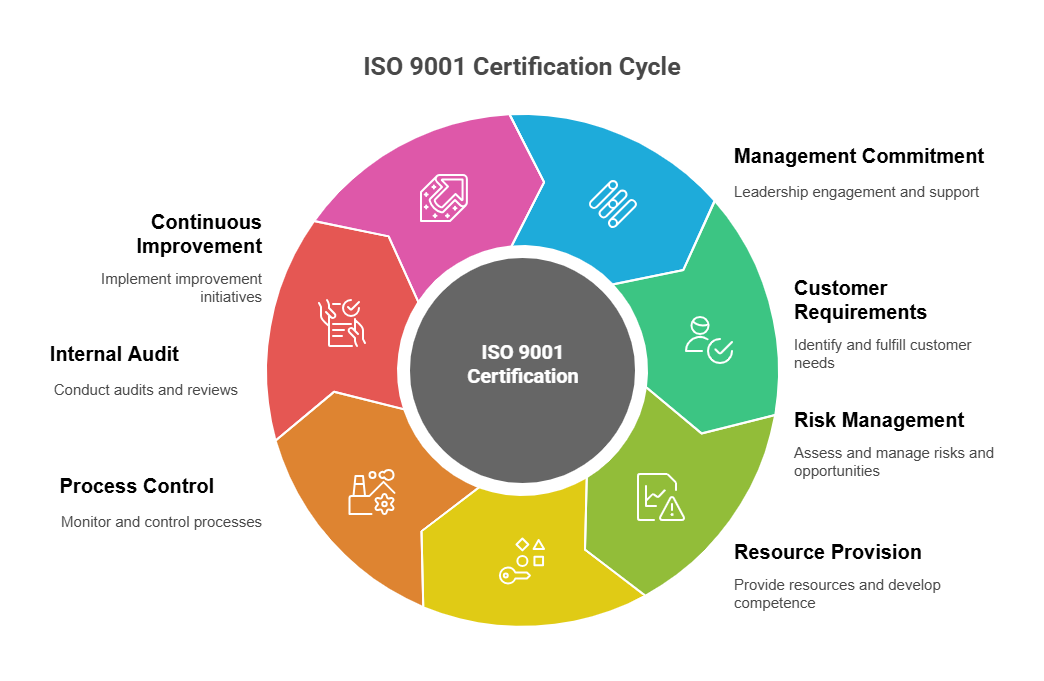
ISO 9001 certification requirements include ten clauses covering scope, normative references, terms and definitions, organizational context, leadership, planning, support, operation, performance evaluation, and improvement. Companies must address each clause systematically while maintaining focus on business objectives.
Critical requirements include:
- Management commitment and leadership engagement
- Customer requirements identification and fulfillment
- Risk and opportunity assessment and management
- Resource provision and competence development
- Process control and monitoring
- Internal audit and management review processes
- Continuous improvement initiatives
Understanding these requirements helps Houston companies develop implementation strategies that maximize certification benefits while minimizing disruption to ongoing operations.
ISO Certification Requirements Specific to Texas Businesses
ISO certification requirements in Texas follow international standards while accommodating state-specific business regulations and industry practices. Houston companies must ensure their quality management systems comply with both ISO requirements and applicable Texas business laws.
Texas businesses benefit from streamlined certification processes through accredited certification bodies operating within the state. Local expertise in oil and gas, aerospace, and medical device manufacturing helps certification consultants understand industry-specific quality challenges and opportunities.
Companies should verify that chosen certification bodies hold accreditation from recognized accreditation organizations, such as ANAB (ANSI National Accreditation Board), to ensure certificate validity and international recognition.
Step-by-Step ISO 9001 Certification Process in Houston
The ISO 9001 certification process typically requires 6-12 months from initiation to certificate issuance, depending on organizational size, complexity, and existing quality systems. Houston companies can accelerate this timeline through proper planning and resource allocation.
The process involves gap analysis, system development, implementation, internal auditing, management review, and external certification audits. Each phase builds upon previous work while preparing organizations for successful certification and ongoing compliance.
How to Get ISO 9001 Certification: The Complete Process
Get ISO 9001 certification by following systematic approaches that address requirements comprehensively while maintaining focus on business objectives. The process begins with commitment from top management and proceeds through structured phases that build quality culture and operational excellence.
Phase 1: Initial Assessment and Gap Analysis
- Current system evaluation against ISO 9001 requirements
- Resource requirements identification
- Implementation timeline development
- Training needs assessment
Phase 2: System Development and Documentation
- Quality management system design
- Process mapping and procedure development
- Document control system establishment
- Training program implementation
Phase 3: Implementation and Testing
- System deployment across all operations
- Performance monitoring and measurement
- Corrective action implementation
- Continuous improvement initiation
ISO 9001 Implementation Phase Requirements
ISO 9001 implementation requires the systematic deployment of quality management systems across all organizational functions. Houston companies must ensure that implementation addresses operational realities while meeting standard requirements.
Implementation success depends on employee engagement, adequate resource allocation, and management commitment to quality culture development. Companies should establish clear timelines, assign responsibilities, and monitor progress regularly to maintain momentum.
Training programs must address both ISO 9001 requirements and specific job responsibilities, ensuring that all personnel understand their roles in the quality management system operation and improvement.
ISO 9001 Documentation Standards You Must Follow
ISO 9001 documentation requirements include quality manuals, documented procedures, work instructions, and quality records. The standard emphasizes documented information rather than prescriptive documentation structures, allowing companies flexibility in system design.
Essential documentation includes:
- Quality policy and objectives
- Process descriptions and procedures
- Measurement and monitoring records
- Internal audit and management review records
- Corrective action and improvement records
Documentation systems should support efficient information access, version control, and change management while maintaining compliance with retention requirements outlined in ISO 9001 quality record retention procedures.
ISO 9001 Procedures Development Guidelines
ISO 9001 procedures must address mandatory requirements while supporting efficient operations and continuous improvement. Procedures should be clear, concise, and actionable, enabling consistent implementation across all organizational levels.
Key procedural areas include document control, management review, internal audit, corrective action, and customer complaint handling. Each procedure should define responsibilities, process steps, and measurement criteria that demonstrate effectiveness.
Effective procedures integrate seamlessly with existing business processes, minimizing administrative burden while ensuring compliance and quality objectives achievement.
Obtaining ISO 9001 Certification Timeline for Houston Businesses
Obtaining ISO 9001 certification timelines vary based on organizational readiness, system complexity, and resource availability. Houston companies typically complete certification within 8-12 months when following structured implementation approaches.
Timeline factors include:
- Current quality system maturity
- Organizational size and complexity
- Employee training requirements
- Management commitment level
- Available internal and external resources
Companies can accelerate timelines through adequate resource allocation, experienced consultant engagement, and a proactive approach to requirement implementation.
ISO 9001 Certification Cost Breakdown for Houston Companies
ISO 9001 certification cost varies significantly based on company size, complexity, and chosen implementation approach. Houston companies should budget $15,000-$50,000 for complete certification, including consulting, training, and certification body fees, though actual costs depend heavily on organizational size and complexity.
Cost components include gap analysis, system development, training, documentation, internal auditing, and external certification audits. Understanding these components helps companies develop realistic budgets and maximize return on certification investment.
Complete ISO Certification Cost Analysis
ISO certification cost analysis should consider both direct certification expenses and indirect costs such as employee time, system changes, and ongoing maintenance requirements. Total investment typically ranges from $20,000-$75,000 for mid-sized manufacturing companies, though costs vary significantly based on organizational complexity.
Direct costs include:
- Consultant fees: $25,000-$40,000 (varies by project scope and duration)
- ISO 9001 training programs: $3,000-$8,000
- Certification body audit fees: $8,000-$15,000 (based on company size)
- Documentation and system development: $5,000-$12,000
Indirect costs encompass employee time, potential operational disruptions, and system integration requirements that vary based on existing infrastructure and organizational readiness.
Factors Affecting ISO 9001 Certification Pricing in Texas
Certification pricing in Texas reflects regional market conditions, consultant availability, and industry-specific requirements. Houston's competitive consulting market often provides cost advantages compared to other major metropolitan areas.
Factors influencing pricing include:
- Company size and employee count
- Industry complexity and regulatory requirements
- Geographic location and consultant travel requirements
- Existing quality system maturity
- Timeline constraints and urgency
Companies should obtain multiple quotes while evaluating consultant experience, industry expertise, and success rates rather than focusing solely on cost considerations.
ISO 9001 Audit Process and Compliance Requirements
The ISO 9001 audit process includes both internal audits conducted by trained company personnel and external audits performed by accredited certification bodies. Houston companies must demonstrate audit readiness through systematic preparation and ongoing compliance maintenance.
Audit success depends on thorough preparation, complete documentation, and employee readiness to demonstrate quality management system understanding and implementation.
Internal ISO 9001 Audit Requirements
ISO 9001 internal auditor training prepares company personnel to conduct systematic evaluations of quality management system effectiveness. Internal audits provide opportunities to identify improvement opportunities while ensuring ongoing compliance.
Effective internal audit programs include:
- Trained in auditor development and maintenance
- Annual audit schedule covering all system elements
- Audit finding, management, and corrective action
- Management review of audit results and trends
Internal auditors should receive formal training covering audit principles, ISO 9001 requirements, and audit techniques that ensure objective, thorough evaluations.
External Certification Body Audit Process
External certification audits consist of Stage 1 documentation review and Stage 2 implementation assessment conducted by accredited certification bodies. These audits verify that quality management systems meet ISO 9001 requirements and operate effectively.
Stage 1 audits evaluate documentation adequacy and system readiness for full assessment. Stage 2 audits examine system implementation, effectiveness, and compliance through interviews, observations, and record reviews.
Successful audit outcomes depend on thorough preparation, complete documentation, and demonstrated system effectiveness across all organizational functions.
Maintaining ISO 9001 Compliance After Certification
ISO 9001 compliance requires ongoing system maintenance, continuous improvement, and periodic surveillance audits. Houston companies must maintain system effectiveness while adapting to changing business requirements and customer expectations.
Compliance maintenance includes:
- Regular management reviews and system updates
- Continuous improvement initiative implementation
- Employee training and competence maintenance
- Performance monitoring and measurement
- Customer satisfaction tracking and analysis
Annual surveillance audits verify continued compliance and system effectiveness, ensuring that certificates remain valid and valuable.

Finding ISO 9001 Consultants and Certification Companies in Houston
Houston's ISO 9001 consultants market includes experienced professionals with deep industry knowledge and proven track records. Selecting qualified consultants significantly impacts certification success and long-term quality management system effectiveness.
Top ISO 9001 Certification Companies in Houston
ISO 9001 certification companies in Houston include both local firms and national organizations with regional presence. Leading certification bodies operating in Houston offer comprehensive certification services.
Local certification services provide advantages including regional expertise, reduced travel costs, and familiarity with Texas business practices.
Companies should verify certification body accreditation status and industry experience when selecting audit organizations to ensure certificate validity and recognition.
Choosing the Right ISO 9001 Certification Consultant
ISO 9001 certification consultant selection requires careful evaluation of experience, industry expertise, and implementation approach. Qualified consultants provide guidance while building internal capabilities that support long-term system success.
Key selection criteria include:
- Industry experience and track record
- ISO 9001 expertise and current knowledge
- Implementation approach and methodology
- Training capabilities and employee development
- Reference checks and client testimonials
Effective consultants transfer knowledge while building internal capabilities, ensuring that organizations can maintain and improve quality management systems independently.
ISO 9001 Certification Services Available in Houston
ISO 9001 certification services in Houston encompass gap analysis, system development, training, implementation support, and ongoing maintenance assistance. Comprehensive service providers offer integrated approaches that streamline certification while building sustainable capabilities.
Service options include:
- Gap analysis and readiness assessment
- Quality management system development
- ISO 9001 training programs for all organizational levels
- Implementation support and guidance
- Internal audit training and support
- Ongoing compliance maintenance
Companies should evaluate service providers based on experience, approach, and ability to support long-term quality objectives rather than just certification achievement.
ISO 9001 Training Options for Houston Professionals
ISO 9001 training programs prepare Houston professionals to implement, maintain, and improve quality management systems effectively. Training investments build internal capabilities that support certification success and ongoing system effectiveness.
ISO 9001 Lead Auditor Training Programs
ISO 9001 lead auditor training prepares professionals to conduct comprehensive audits of quality management systems. Lead auditor credentials provide career advancement opportunities while building valuable organizational capabilities.
Training programs typically cover:
- ISO 9001 requirements and interpretation
- Audit principles and techniques
- Audit planning and execution
- Finding management and reporting
- Certification and continuous improvement
Houston training providers include ASQ, IAS, and various consulting organizations offering both classroom and virtual training options.
Internal Auditor Certification Training in Houston
Internal auditor training builds capabilities for conducting systematic evaluations of quality management system effectiveness. These programs prepare employees to identify improvement opportunities while ensuring ongoing compliance.
Training components include audit planning, interview techniques, finding documentation, and corrective action management. Participants learn to conduct objective assessments that support continuous improvement while maintaining positive working relationships.
Local training availability reduces travel costs while providing networking opportunities with other Houston professionals pursuing ISO 9001 expertise.
Building Your ISO 9001 Quality Management System
ISO 9001 quality management system development requires a systematic approach that addresses organizational context, stakeholder requirements, and business objectives. Effective systems integrate seamlessly with existing operations while driving continuous improvement.
ISO Quality Management System Components
ISO quality management system components include leadership engagement, customer focus, process approach, people engagement, relationship management, systematic decision-making, and continuous improvement. These principles guide system development and implementation.
Core system elements include:
- Quality policy and objectives alignment
- Process identification and management
- Resource provision and competence development
- Performance monitoring and measurement
- Risk and opportunity management
- Customer satisfaction tracking
Understanding these components helps organizations develop integrated systems that support both certification requirements and business success.
ISO 9001 System Implementation Best Practices
ISO 9001 system implementation succeeds through systematic approaches that address requirements comprehensively while maintaining focus on operational excellence. Best practices include management commitment, employee engagement, and continuous communication.
Implementation strategies should:
- Start with leadership commitment and visible support
- Engage employees in system development and improvement
- Focus on business benefits rather than just compliance
- Implement gradually while maintaining operational stability
- Monitor progress and adjust approaches based on results
Successful implementations create quality cultures that extend beyond certification requirements to drive sustainable business improvement.
Common Challenges in the ISO Certification Process
The ISO certification process presents challenges that Houston companies can overcome through proper planning, adequate resources, and experienced guidance. Understanding common obstacles helps organizations prepare proactively for successful certification.
Avoiding Common ISO 9001 Implementation Mistakes
Common implementation mistakes include insufficient management commitment, inadequate employee training, overly complex documentation, and a focus on compliance rather than improvement. These mistakes can delay certification while limiting system effectiveness.
Prevention strategies include:
- Securing visible management commitment and participation
- Investing in comprehensive employee training programs
- Developing practical, user-friendly documentation
- Emphasizing business benefits and improvement opportunities
- Maintaining regular communication and progress monitoring
Organizations should learn from others' experiences while adapting approaches to their specific circumstances and requirements.
Overcoming Documentation Challenges
Documentation challenges include determining appropriate detail levels, maintaining current information, and ensuring employee accessibility. Effective documentation systems balance compliance requirements with operational practicality.
Solutions include:
- Developing clear documentation standards and templates
- Implementing efficient document control systems
- Training personnel on documentation requirements and access
- Regular review and update processes
- Integration with existing business systems and workflows
Modern approaches leverage digital platforms and collaborative tools that simplify documentation management while ensuring compliance and accessibility.
Next Steps to Start Your ISO Certification Journey
The ISO certification journey begins with management commitment and systematic planning that addresses organizational readiness, resource requirements, and implementation timelines. Houston companies can accelerate success through proper preparation and expert guidance.
Ready to Begin Your ISO 9001 Certification Process?
Beginning your ISO 9001 certification process requires assessment of current capabilities, development of implementation plans, and resource allocation for achievement. Companies should start with gap analysis to understand requirements and develop realistic timelines.
Initial steps include:
- Management commitment confirmation and communication
- Current system assessment against ISO 9001 requirements
- Resource requirements identification and allocation
- Implementation team formation and training
- Consultant selection and engagement
- Project timeline and milestone development
How BPRHub Helps with ISO 9001 Certification
BPRHub's comprehensive Quality, Compliance, and Governance platform transforms ISO 9001 certification from a complex administrative burden into a streamlined competitive advantage. The platform centralizes all quality management system requirements within unified interfaces that eliminate duplicate workflows while ensuring continuous audit readiness.
With automated ISO 9001 documentation management, real-time compliance monitoring, and integrated training capabilities, BPRHub ensures your Houston operations maintain certification requirements while accelerating business growth. The platform's Unified Compliance Framework manages multiple standards simultaneously, reducing administrative overhead that traditionally consumes valuable resources.
BPRHub's intelligent workflow automation captures quality data in real-time, generates audit reports automatically, and provides predictive analytics that identify potential compliance issues before they impact certification status. This proactive approach reduces certification maintenance costs while freeing your team to focus on core business objectives.
The platform integrates seamlessly with existing business systems while providing ISO 9001 management review capabilities and internal audit management that ensure ongoing compliance and continuous improvement.
Get Certified Faster & Smarter – Book Your BPRHub Consultation Now!
📍 Book a Demo
📧 hello@bprhub.com
Key Takeaways
→ ISO 9001 certification in Houston, companies gain immediate competitive advantages through internationally recognized quality standards that open global market opportunities
→ ISO 9001 certification cost typically ranges $15,000-$50,000 but delivers 10-15% operational cost savings within the first year through improved efficiency
→ ISO 9001 certification process requires 6-12 months but can be accelerated through proper planning, management commitment, and experienced consultant guidance
→ Quality management system implementation must address both ISO 9001 requirements and specific business objectives to maximize certification benefits and operational improvement
→ ISO 9001 training investments build internal capabilities that support long-term certification maintenance and continuous improvement beyond initial achievement
→ BPRHub's platform centralizes ISO 9001 compliance management while automating documentation, audit preparation, and performance monitoring that ensures ongoing certification success
FAQ
Q. How long does ISO 9001 certification take in Houston?
ISO 9001 certification typically requires 6-12 months from project initiation to certificate issuance for Houston companies. Timeline factors include organizational size, existing quality management system maturity, management commitment level, and resource availability. Companies with established quality systems may achieve certification in 4-6 months, while those starting from scratch may require 12-18 months. Proper planning, adequate resource allocation, and experienced consultant engagement can significantly accelerate timelines while ensuring thorough implementation and sustainable results.
Q. What does ISO 9001 certification cost for Houston businesses?
ISO 9001 certification cost for Houston businesses typically ranges $15,000-$50,000, including consultant fees, training, documentation development, and certification body audits. Small companies (under 50 employees) may invest $15,000-$25,000, while larger organizations can expect $30,000-$75,000 total investment, though costs vary significantly based on organizational complexity. Cost factors include company size, industry complexity, existing system maturity, and timeline requirements. Despite initial investment, organizations with effective quality management systems can achieve substantial cost reductions through improved efficiency and reduced quality-related expenses.
Q. Who are the best ISO 9001 consultants in Houston?
Houston's leading ISO 9001 consultants include firms with proven track records in manufacturing, oil and gas, aerospace, and medical device industries. Top consultants provide comprehensive services including gap analysis, system development, training, and implementation support. Selection criteria should include industry experience, ISO 9001 expertise, implementation methodology, training capabilities, and client references. Companies should evaluate multiple consultants while focusing on experience and approach rather than just cost. Local expertise in Houston's business environment and regulatory landscape provides additional value for successful certification.
Q. Is ISO 9001 certification mandatory for Houston manufacturers?
ISO 9001 certification is not legally mandatory for Houston manufacturers but may be required by customers, contracts, or industry regulations. Many major corporations require suppliers to hold ISO 9001 certification as a procurement prerequisite. Government contracts, export markets, and certain industries often mandate certification for participation. While not required by law, certification provides competitive advantages, including enhanced credibility, improved operational efficiency, and access to global markets. Companies should evaluate customer requirements and business objectives when deciding whether to pursue certification.
Q. How do I maintain ISO 9001 certification after getting certified?
Maintaining ISO 9001 certification requires ongoing quality management system operation, annual surveillance audits, and three-year recertification assessments. Companies must conduct regular internal audits, management reviews, and continuous improvement activities. Surveillance audits verify continued compliance and system effectiveness, while recertification involves a comprehensive assessment similar to initial certification. Maintenance activities include employee training updates, procedure revisions, corrective action implementation, and performance monitoring. BPRHub's platform automates many maintenance activities, including audit scheduling, documentation management, and compliance tracking that ensures ongoing certification validity.
Get insights that help you minimize risks and maximize profits.
Dive deeper into manufacturing compliance with our free resources.
We get it, compliance can get tough.
Here are some additional resources to help.
We get it, compliance can get tough. Here are some additional resources to help.
Get updates in your inbox

.svg)
%20(1).svg)
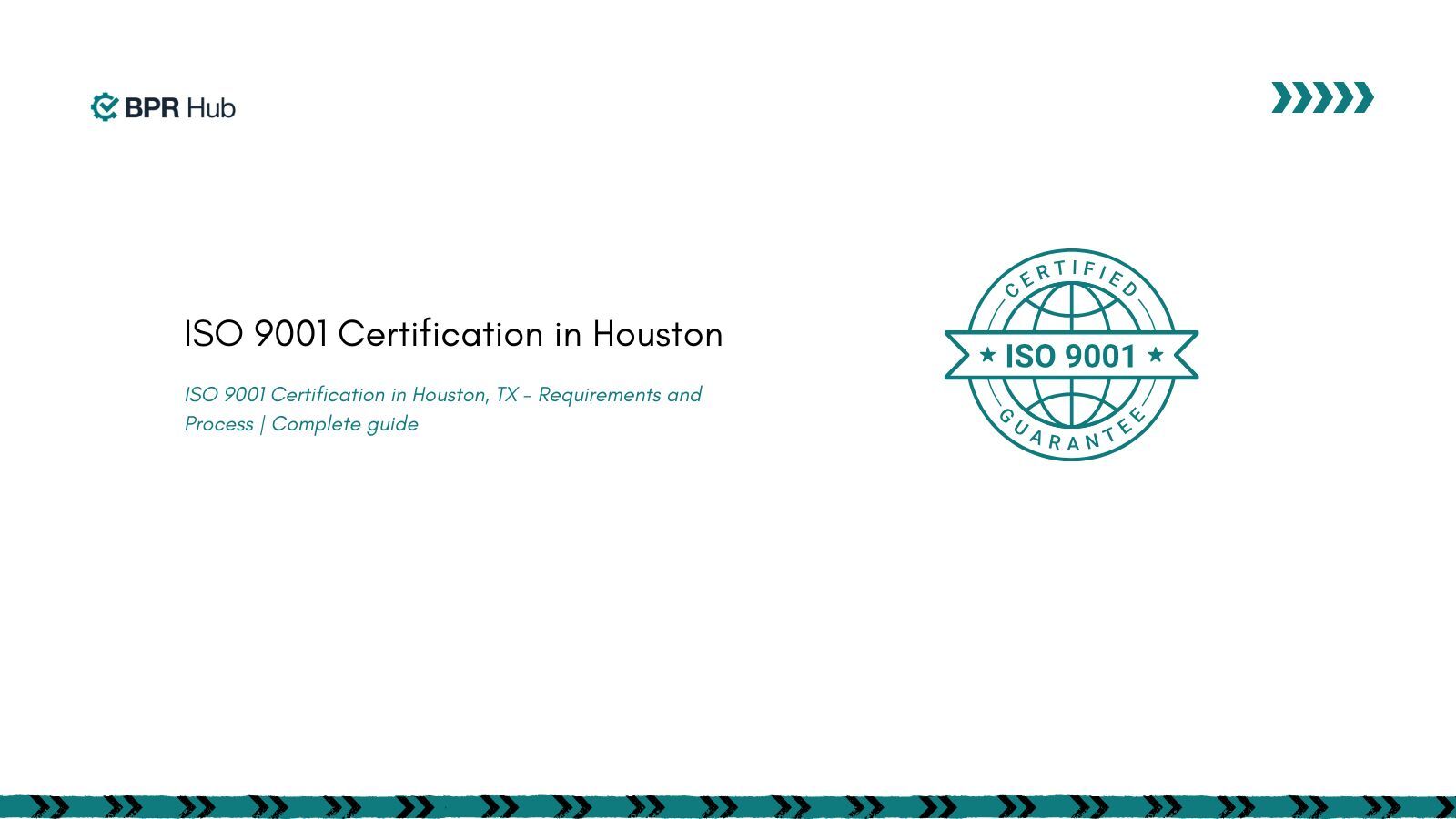


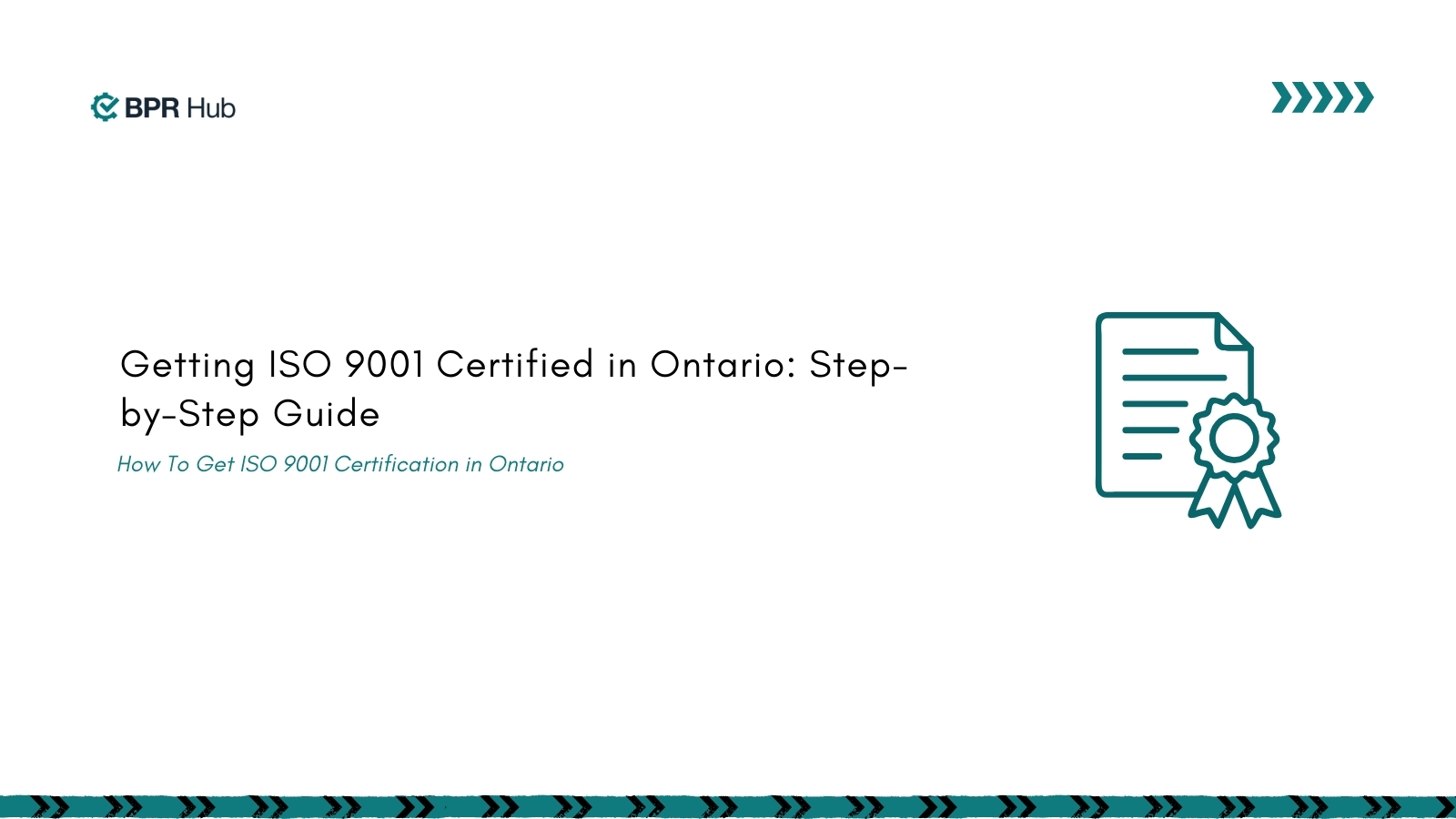
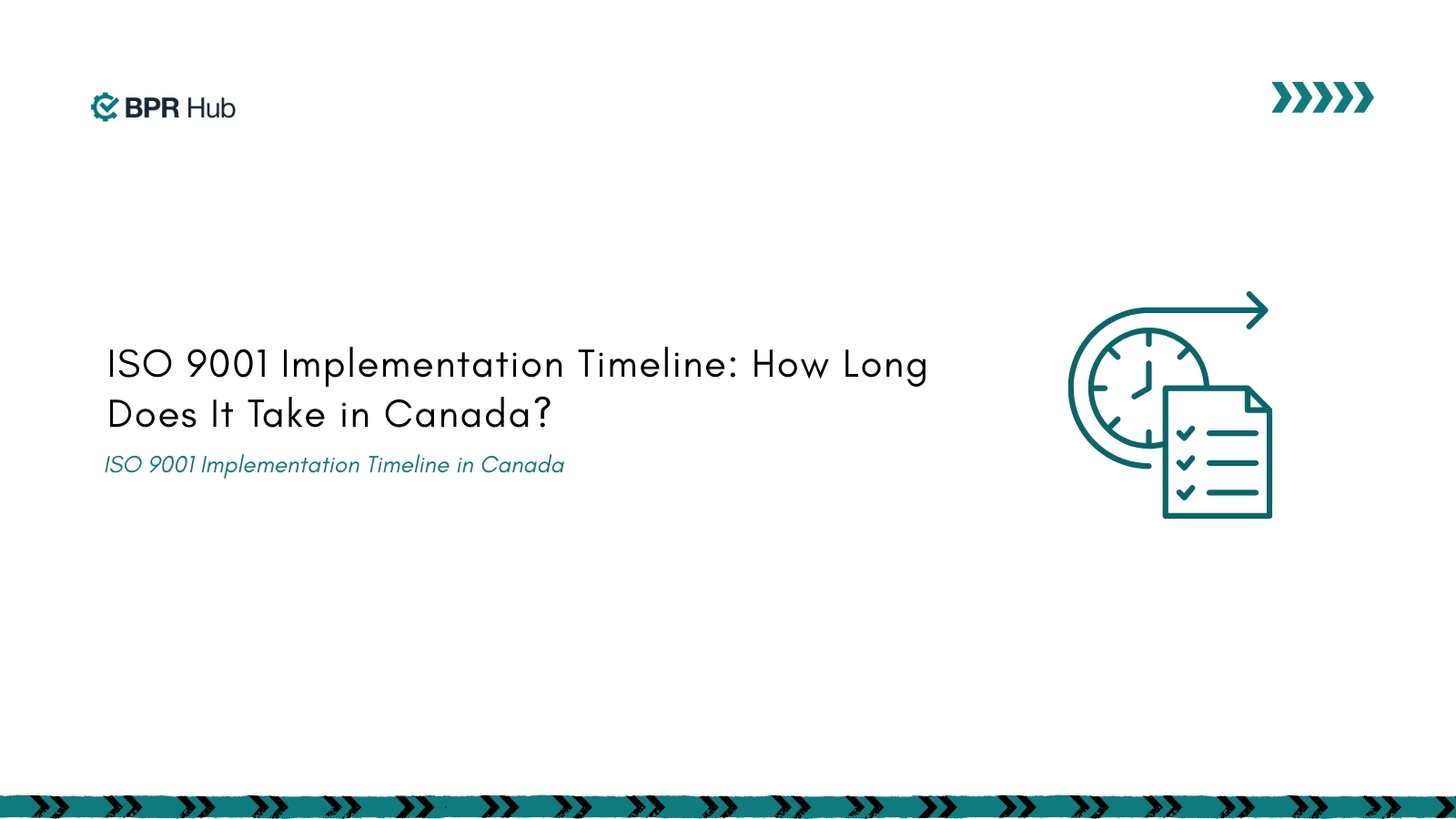
%20(1).svg)

.avif)

